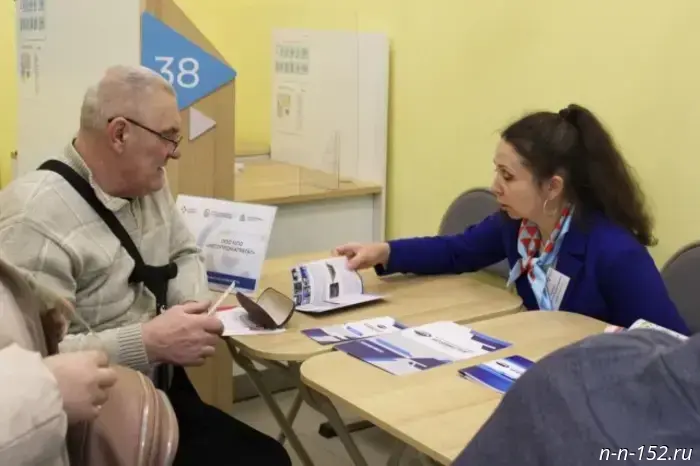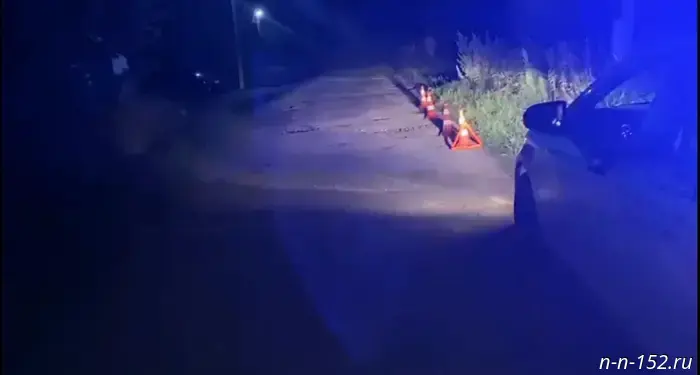On the epidemiological situation regarding tick-borne infections
The Rospotrebnadzor Department for the Nizhny Novgorod Region warns that favorable climatic conditions in the region contribute to increased insect activity, including ticks, which are carriers of various infectious diseases.
Starting from March 3, 2025, weekly monitoring of the population's reports regarding tick bites has been initiated.
As of July 10, 2025, there have been 6,566 reports (including 1,956 children) to medical organizations concerning tick bites in 49 municipalities and in 8 districts of the Nizhny Novgorod agglomeration. This number is 6% above the long-term average reporting level for tick bites.
High levels of tick bite reports have been registered in the following municipalities: Pavlovsky municipal district (417), Dzerzhinsk urban district (365), Bor urban district (354), Gorodetsky municipal district (255), Vetluzhsky municipal district (243), Shakhunya urban district (242), Kstovsky municipal district (198), Uren municipal district (194), Semyonovsky urban district (179), Vyksa urban district (172), as well as in the districts of the city of Nizhny Novgorod: Automzavodsky (480), Prioksky (431), Leninsky (371), Sovetsky (366).
The population fell victim to tick bites in 22% of cases in garden plots, 22% in village and rural areas, 17% at private household sites, 17% in forests, 3% on cemetery grounds, and 3% in parks and squares.
Isolated cases of tick attachment have been recorded at sanatoriums, beaches, and other locations.
Emergency prophylaxis with anti-tick immunoglobulin was administered to 1,110 people, including 1,059 children.
Laboratory examination of a total of 6,647 ticks revealed 6,356 ticks removed from humans and 291 from environmental objects, with 1,180 positive findings, representing 17.7% of the analyzed ticks.
The infection rates of ticks with tick-borne encephalitis virus stand at 0.3%, with Borrelia – 20%, Anaplasma – 2.7%, and Ehrlichia – 0.6%.
Detected were: 23 ticks infected with tick-borne encephalitis virus in the municipalities of Shakhunsky, Krasnobakovsky, Bogorodsky, Uren, Pavlovsky, Tonkinsky, Vachsky, Tonshaevsky, and Sharangsky; 1,024 ticks infected with Borrelia; 107 infected with Anaplasma; and 26 infected with Ehrlichia.
Currently, there are 3 confirmed cases of tick-borne viral encephalitis, with one case where the infected tick was attached within the region—in the Varnavinsky district. Other cases involved tick bites in Ivanovo Region and Altai Krai; in these cases, victims did not seek medical assistance, and prophylactic immunoglobulin was not administered.
Additionally, 45 cases of Ixodid tick-borne borreliosis have been registered, including 2 children.
As of July 10, 2025, 9,208 people have been vaccinated against tick-borne encephalitis, including 1,335 children.
Acaricidal treatments have been carried out on an area of 4,413.663 hectares, which is 101% of the plan (4,361.794 hectares), including 539.690 hectares (99% of the plan) in localities of the Nizhny Novgorod region.
The responsibility for conducting acaricidal treatments lies with the executive authorities of the RF subjects, legal entities, individual entrepreneurs, and leaders of gardening, vegetable-growing, and dacha associations.
How to protect yourself from tick encounters?
- Wear specialized or adapted clothing that fits tightly to the body when visiting forests and green areas.
- Avoid resting in shaded areas with tall grass. Do not sit or lie on the grass, as ticks cling to clothing from the grass and always crawl upward.
- Choose dry places with sandy soil or areas free of grass for camping or overnight stays in nature. Carefully inspect your clothing, body, and hair before sleeping.
- Use repellents that repel ticks, which can be purchased at any pharmacy or supermarket.
- Perform self- and mutual examinations for ticks every 10-15 minutes. Check your clothing for seams and collars where ticks may hide, and regularly inspect pets after walks outdoors.
- If a tick attaches, seek medical assistance at your local clinic or temporary residence.
In case of tick attachment:
1. Seek medical care as soon as possible (with passport and compulsory health insurance policy) for tick removal, where medical personnel will explain the procedure for delivering the tick to the laboratory to a legal guardian if the victim is a child.
2. Conduct testing of the tick for markers of tick-borne viruses and other pathogens transmissionable through insect bites.
3. For individuals under 18 not vaccinated against tick-borne encephalitis, immunoglobulin prophylaxis should be administered regardless of the test results of the tick.
4. Ticks, both live and dead, can be tested for tick-borne infections; ensure the integrity of the specimen, proper storage, and delivery (in a container, on moist cotton, stored in a refrigerator).
The Rospotrebnadzor Department for the Nizhny Novgorod Region informs about the operation of the laboratory of the Federal Budgetary Healthcare Institution "Center for Hygiene and Epidemiology in the Nizhny Novgorod Region" for tick specimen reception from May 1, 2025:
- Nizhny Novgorod, Nevinnomysskaya Embankment, building 2, 3rd entrance, 4th floor, entrance from the yard (Specially Dangerous Infections Laboratory), Monday to Friday from 9:00 to 16:00, weekends and holidays from 9:00 to 12:00, tel. 8-8314335442; 8-9038480430;
- Nizhny Novgorod Region, Shakhunya urban district, Revolyutsionnaya St., 32, Monday to Friday from 8:00 to 16:00 (break 12:00 to 12:30), Sundays and holidays (May 2, 4, 10, 11, June 13, 15) from 9:00 to 11:00, Saturday – day off; tel. 88315227320;
- Nizhny Novgorod, Kulibaba St., 11D, Monday to Thursday from 9:00 to 16:00, Friday from 9:00 to 15:00 (break 12:00 to 13:00), holidays, Saturday, Sunday – days off; tel. 8-9092835446;
- Nizhny Novgorod, Ilyicha Ave., 3, Monday to Friday from 8:00 to 14:00 (break 12:00 to 13:00), holidays, Saturday, Sunday – days off; tel. 8-8312958714;
- Nizhny Novgorod, Lunacharsky St., 4, Monday to Friday from 8:00 to 14:00 (break 12:00 to 13:00), holidays, Saturday, Sunday – days off; tel. 8-8312460330;
- Bor urban district, Plekhanova St., 1, Monday to Friday from 8:00 to 14:00 (break 12:00 to 13:00), holidays, Saturday, Sunday – days off; tel. 8-8315963848;
- Dzerzhinsk, Dzerzhinsky Ave., 19a, Monday to Friday from 8:00 to 14:00 (break 12:00 to 13:00), holidays, Saturday, Sunday – days off; tel. 8-8313224037;
- Kstovo, Talalushkina St., 11A, Monday to Friday from 8:00 to 14:00 (break 12:00 to 13:00), holidays, Saturday, Sunday – days off; tel. 8-8314522500.
The epidemiological situation regarding diseases transmitted by tick bites remains under control of the Rospotrebnadzor Department for the Nizhny Novgorod Region.
Другие Новости Нижнего (Н-Н-152)
 Scheduled repair and testing of the heating system will take place in Dzerzhinsk from July 21 to 27.
Photo: Press Service of "T Plus"
From July 21 to 27, the energy specialists of the Nizhny Novgorod branch of "T Plus" will carry out scheduled repairs of the Dzerzhinskaya TETs intra-station networks and routine testing of main thermal networks on July 10, 2025. NIA Nizhny Novgorod. Nizhny Novgorod Region. Nizhny Novgorod.
Rospotrebnadzor provides recommendations for working in conditions of increased air temperature
Hot weather leads to worsened working conditions. It is especially difficult for those working outdoors or in rooms without climate control equipment. 07/10/2025. Rospotrebnadzor. Nizhny Novgorod Region. Nizhny Novgorod.
The traffic police remind young parents of the rules for transporting infants in the car interior.
As part of the informational and preventive campaign "Summer is a Little Life!", police officers conducted activities at the regional perinatal center in Nizhny Novgorod on July 10, 2025. GIBDD. Nizhny Novgorod Region. Nizhny Novgorod.
Scheduled repair and testing of the heating system will take place in Dzerzhinsk from July 21 to 27.
Photo: Press Service of "T Plus"
From July 21 to 27, the energy specialists of the Nizhny Novgorod branch of "T Plus" will carry out scheduled repairs of the Dzerzhinskaya TETs intra-station networks and routine testing of main thermal networks on July 10, 2025. NIA Nizhny Novgorod. Nizhny Novgorod Region. Nizhny Novgorod.
Rospotrebnadzor provides recommendations for working in conditions of increased air temperature
Hot weather leads to worsened working conditions. It is especially difficult for those working outdoors or in rooms without climate control equipment. 07/10/2025. Rospotrebnadzor. Nizhny Novgorod Region. Nizhny Novgorod.
The traffic police remind young parents of the rules for transporting infants in the car interior.
As part of the informational and preventive campaign "Summer is a Little Life!", police officers conducted activities at the regional perinatal center in Nizhny Novgorod on July 10, 2025. GIBDD. Nizhny Novgorod Region. Nizhny Novgorod.
 Nizhny Novgorod Staffing Center "Work of Russia" assists retirees in finding a job.
Nizhny Novgorod Staffing Center "Work of Russia" assists pensioners in finding jobs. 07/10/2025. NTA-Privolye. Nizhny Novgorod Region. Nizhny Novgorod.
Almost half a million rubles were recovered from DUK in favor of a pensioner.
Bailiffs helped a 71-year-old woman recover property damages and moral compensation after a leak in her apartment caused by the poor condition of the roof. July 10, 2025. Federal Bailiff Service of the Nizhny Novgorod Region. Nizhny Novgorod Region. Nizhny Novgorod.
Nizhny Novgorod Staffing Center "Work of Russia" assists retirees in finding a job.
Nizhny Novgorod Staffing Center "Work of Russia" assists pensioners in finding jobs. 07/10/2025. NTA-Privolye. Nizhny Novgorod Region. Nizhny Novgorod.
Almost half a million rubles were recovered from DUK in favor of a pensioner.
Bailiffs helped a 71-year-old woman recover property damages and moral compensation after a leak in her apartment caused by the poor condition of the roof. July 10, 2025. Federal Bailiff Service of the Nizhny Novgorod Region. Nizhny Novgorod Region. Nizhny Novgorod.
 A 39-year-old motorcyclist without a helmet hit two pensioners in the Nizhny Novgorod region and fled.
GAI NO
On the evening of July 6, 2025, an accident occurred in the village of Kryushi, Pavlovo District, Nizhny Novgorod Region. July 10, 2025. ProGorodNN.Ru. Nizhny Novgorod Region. Nizhny Novgorod.
A 39-year-old motorcyclist without a helmet hit two pensioners in the Nizhny Novgorod region and fled.
GAI NO
On the evening of July 6, 2025, an accident occurred in the village of Kryushi, Pavlovo District, Nizhny Novgorod Region. July 10, 2025. ProGorodNN.Ru. Nizhny Novgorod Region. Nizhny Novgorod.
On the epidemiological situation regarding tick-borne infections
The Rospotrebnadzor Department for the Nizhny Novgorod Region warns that favorable climatic conditions in the Nizhny Novgorod Region contribute to the activation of insects, including ticks, on 07/10/2025. Rospotrebnadzor. Nizhny Novgorod Region. Nizhny Novgorod.
